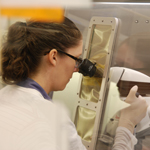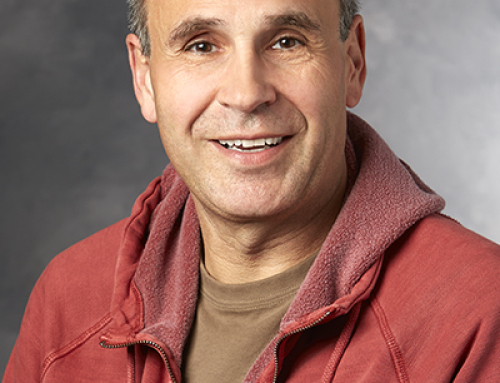
In a paper published yesterday in PLoS ONE, Dr. Oghalai and colleagues reported findings that hearing loss due to loud blasts, such as roadside bombs and other explosions, may not be irreversible, as previously thought.
During a blast, damage to the eardrum is common, however a ruptured eardrum can repair itself or can be easily detected by exam and repaired through surgery, and though this damage may cause a thickening of the membrane, it is not generally the cause of long term hearing loss.
Prior to this study, it was thought that loud explosions caused damage to the structure of the cochlea, therefore causing permanent hearing loss. However, using the mouse model and modern imaging techniques, Dr. Oghalai and his team were able to show that in fact, the blast caused hair and nerve cell damage, rather than damage to the cochlea. Dr. Oghalai explains in the Stanford School of Medicine release by Tracie White, Hearing loss from loud blasts may be treatable, researchers say, that much of the permanent hearing loss, in a blast injury, is due to the damaged hair cells and auditory nerve cells and the body’s immune response to these injured cells. He believes that in the future there may be a period of time in which a patient could be treated with drugs to prevent further damage to the inner ear and to prevent the immune response following a blast.
As hearing loss and tinnitus are the most common service related disabilities, and the use of improvised explosive devices (IEDs) is on the rise worldwide, this study gives hope that possible future treatments could make a large difference in the lives of military personnel, veterans and private citizens who have sustained a blast injury.
This study was funded by the Department of Defense, NIH and Chosun University in South Korea.






Good morning,
My name is Claudia and on June 30 2013 , i was clean ins my home with a loud portable vaccum and suddenly i loss my hearing on my left ear , currenly im dealing with a terrible sound in my head and i cannot function , i would like to know if you have any information that can help me, i saw 3 ENT doctors with out any results.
I look forward to hear from you and thank you in advance.
Claudia
Claudia – Unfortunately, we cannot advise on specific medical conditions via the blog, but if you are in the SF Bay area, you are welcome to make an appointment Adult ENT Clinic, details of which can be found here: http://med.stanford.edu/ohns/patient_care/adult_programs.html